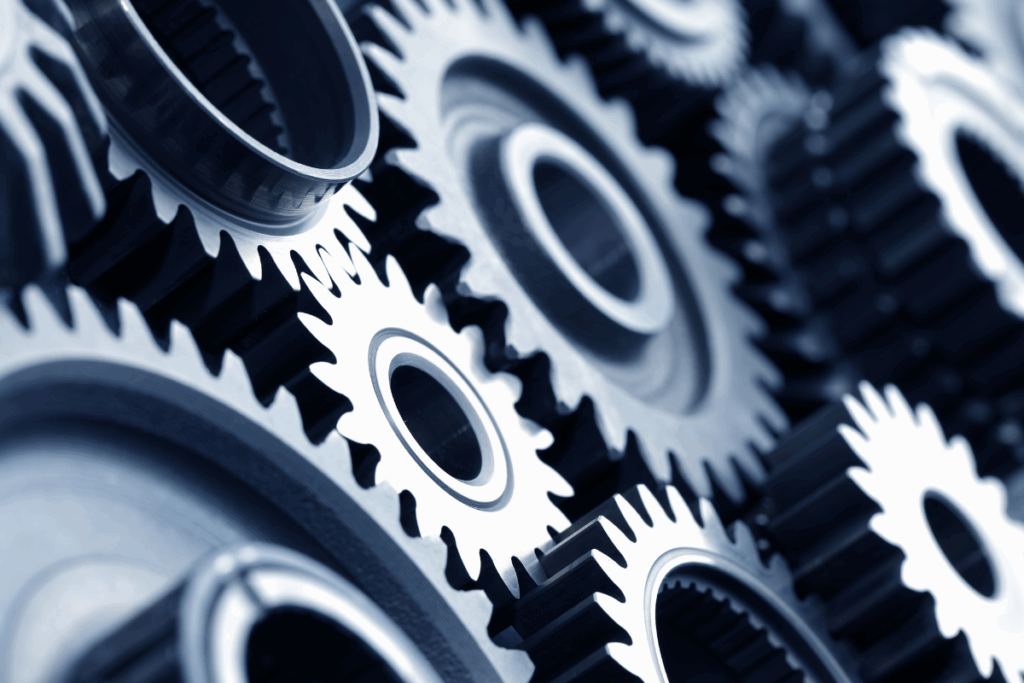Design accuracy, strong materials, and to-spec fabrication all play critical roles in precision machining. However, professional auto components suppliers and industrial parts manufacturers understand that the actual test of quality often lies in what cannot be seen: meeting the rigorous cleanliness requirements of every machined part and assembly.
Cleaning requirements in precision machining are not to address cosmetic concerns, but instead address tiny chips and contaminants left behind during the fabrication process. As tolerances become increasingly tight and designs become more complex, even microscopic contaminants can compromise performance, lead to premature wear, or trigger costly failures. Avoiding these outcomes demands requires a fully automated, meticulously engineered approach to both chip removal and decontamination.
Why Is Cleanliness So Vital In Precision Machining?
Part cleanliness standards ensure assembly integrity, preventing corrosion, and extending the lifespan of the final product. Every machined component, including iron castings destined for high-performance assemblies, must be free from chips, swarf, oil residues, and microscopic particulates to meet the manufacturer’s quality expectations.
The stakes are even higher in CNC precision machining. The presence of even a single stray particle can disrupt dimensional accuracy, increase friction, and accelerate tool wear. The margin for error is virtually zero for industries such as automotive and off-road parts and equipment, where reliability and safety are non-negotiable.
Read More: Why Metrology Matters In Precision Machining
How The Metalworking Industry Defines “Clean”
Precision machining facilities follow a unique set of guidelines that are often quantified by the maximum allowable particle size and the total particulate load. For example, semiconductor manufacturing usually requires that no residual particles be larger than five μm.
However, automotive and heavy equipment applications typically set thresholds based on functional risk and assembly requirements, typically in the 100–200 μm range for residual dirt.
These numbers provide excellent guidelines in ensuring that machined parts and equipment are clean from contaminants, but the real challenge lies in removing particles from every surface, including blind holes and internal cavities that are notoriously difficult to access. This is where modern technology enters the scene with solutions that help metalworkers meet the applicable clean requirements.
Read More: The Role Of Tolerances In Precision Machining
Tech-Based Cleaning Solutions Used At Kenona Industries/Arrow Automotive
We employ two fully automated cleaning processes at our Kenona production facility to ensure that we consistently meet our stringent cleanliness standards. They also enable us to easily scale or reconfigure our processes with minimal disruption and utilize system data and inspection records to support compliance with customer and regulatory requirements.
Automated Blow Off Boxes For Cleaning
One of the most persistent sources of contamination in precision machining is the accumulation of tiny metal fragments generated during cutting and milling. Manually trying to remove these chips is labor-intensive and inconsistent, and leaves room for error.
That’s why our engineers use automated blow off boxes integrated directly into the production line to increase the efficiency and speed of the cleaning process. Integrated blow off boxes keep production moving forward efficiently by keeping pace with high-volume production, reducing bottlenecks and labor costs.
The process starts with robots loading finished machined parts into a sealed blow-off enclosure. High-velocity, precisely directed air jets, synchronized with part rotation, dislodge chips and coolant from every surface, including in parts with complex geometries and deep recesses. Automation technology monitors and adjusts the process in real-time, ensuring consistent results across every batch and eliminating the variability of manual cleaning.
By containing and extracting debris within the enclosure, the system also minimizes operator exposure to airborne particulates and contaminants, improving worker safety.
Automated Solvent Wash Stations
Physical chip removal is only the first step. Residual oils, coolants, and microscopic particulates require a more thorough approach, especially for iron castings, which are prone to retaining contaminants in surface pores and internal passages.
Our solvent wash process provides an ideal solution to ensure iron castings meet cleanliness requirements. Parts are robotically loaded into enclosed solvent wash stations that are programmed to carry out different washing processes based on the material and contaminant profile.
For example, solvent-based cleaners are typically used for oil residues, while aqueous solutions may be selected for water-soluble contaminants. We prefer to apply solvent-based degreasers to iron castings to ensure thorough removal of oil and swarf, and take steps to contain and recycle solvents, thereby minimizing emissions and waste.
Our system uses agitation methods, such as ultrasonic vibration or mechanical movements, to enhance solvent penetration, especially in complex or occluded geometries.
After washing, parts undergo a controlled rinse and drying sequence, often using filtered air or vacuum systems to prevent recontamination. Our automated system ensures that every part receives the same exposure time, agitation, and rinse quality, eliminating the risk of human error.
Ensure You Get Top Product Quality By Partnering With Arrow Automotive
Our cleaning process isn’t complete without a rigorous inspection of the final result. Although visual examination under adequate lighting and magnification is the first line of defense, we employ particle counters and surface analysis tools to quantify cleanliness. Acceptable particle count levels are established based on downstream requirements, and only parts meeting these specifications proceed to assembly or shipment.
As a leading automotive components supplier, our engineers utilize advanced technology to deliver products that our customers can rely on for reliability, performance, and quality. With our team in your corner, you’re assured of the best results for your precision machine projects every time. Get in touch with us when you’re ready to build!
Contact Kenona Industries for a quote on your next design and fabrication project
Kenona Industries is a world-class supplier of automotive components to leading OEMs and Tier 1, 2, and 3 manufacturers. Discover what sets us apart by requesting a quote for your next project today!
